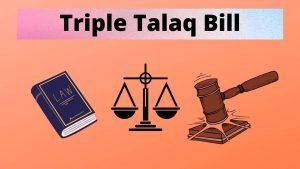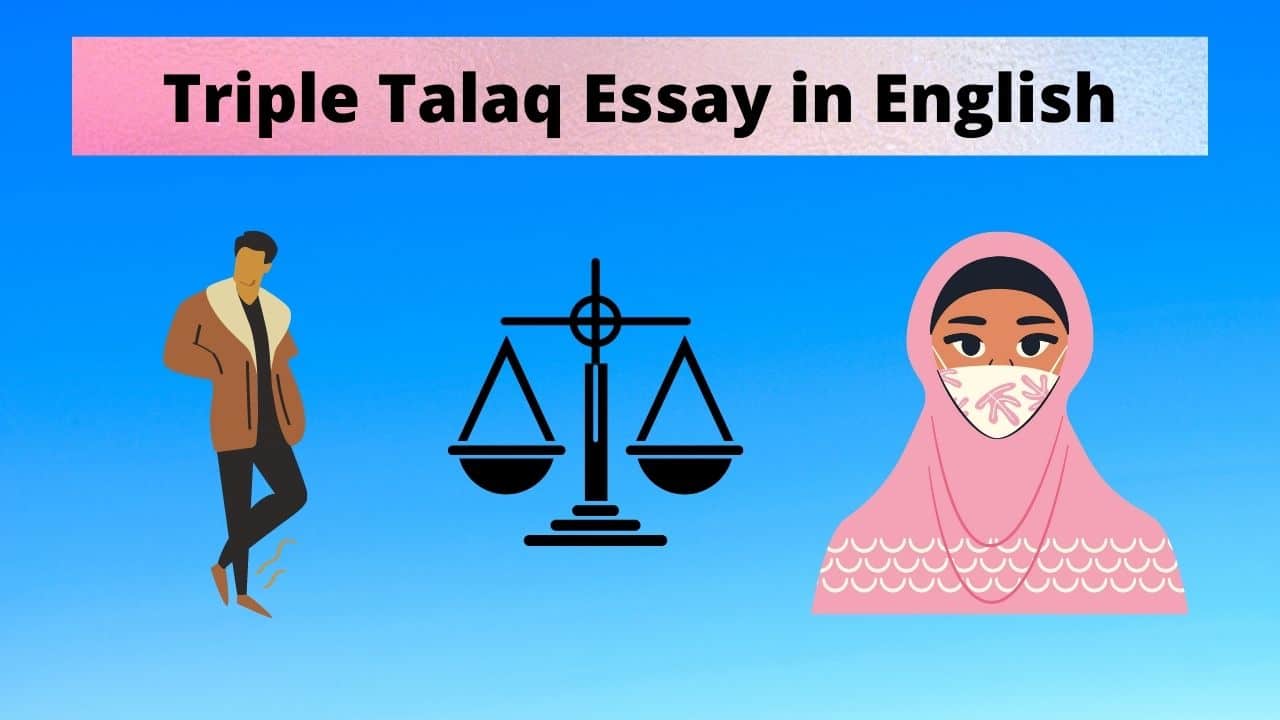Hello, Welcome To CBSE Digital Education. Today We Are Going To Discuss A Interesting Topic About Triple Talaq Essay in English.
After reading this article about Triple Talaq Essay, you will be able to answer all important questions related to it. CBSE Digital Education provides all information regarding the essay on Triple Talaq in English.
Triple Talaq Essay in English for Students
Men and women are two integral parts of any society. Society cannot be imagined without anyone. According to Swami Vivekananda, “Just as a bird cannot fly with one wing, similarly a society cannot develop by neglecting women.
In fact, the biggest identity of a civilized and developed society is that the life of women in that society should be full of self-respect.
In this context, to end the practice of triple talaq prevention in Muslim society, the Indian Parliament has enacted the Triple Act or the Muslim Women (Protection of Rights on Marriage) Act, 2019 so that women can live their lives with self-respect.
What is Triple Talaq?
Triple talaq, also called talaq-e-bidet, is a form of instant Islamic divorce that has been practiced by Indian Muslims. The practice of instant triple talaq was held unconstitutional by the Hon’ble Supreme Court in August 2017. The use and status of triple talaq in India have been a matter of controversy and debate. Those questioning this practice have raised issues of justice, gender equality, human rights, and secularism.

The debate involves the Government of India and the Supreme Court of India and is linked to the debate about a Uniform Civil Code (UCC) described in Article 44 of the Constitution of India. In July 2019, the Parliament of India declared the practice of triple talaq illegal, unconstitutional and made it a punishable act.
In fact, many countries around the world have already banned triple talaq. Islamic countries that have banned triple talaq include Pakistan, Indonesia, Egypt, Turkey, and Bangladesh.
Triple Talaq Violates Fundamental Rights
The practice of triple talaq is considered terrible in theology. However, it was previously recognized as valid by law. This practice was against the basic principle of the Right to Life laid down by the Indian Constitution (Article 21) and violated the dignity of women.
Triple Talaq was also against Article 14 of the Constitution (which guarantees equality before the law). This practice amounted to gender discrimination and was not in accordance with the modern principles of human rights.
This practice also wreaks havoc in the lives of divorced women and their children, especially those belonging to the weaker economic sections of society.
Provisions in Triple Talaq Act
Under this act, triple talaq has been taken out of the category of civil cases and put in the criminal category and triple talaq has been declared illegal.
- Provision of triple talaq cognizable offense, that is, police can arrest without warrant, but only when the woman herself makes a complaint.
- A neighbor or some unknown person cannot file a case in this matter.
- Members of blood or marriage relation will also have the right to file cases.
- The aggrieved woman can claim maintenance from her husband. The amount will be decided by the magistrate.
- The magistrate will decide whether the victim woman can keep minor children with her.
- According to this law, the magistrate can grant bail to the accused, bail will be granted only after hearing the side of the victim woman. The Magistrate may, on the request of the aggrieved woman, allow settlement. The magistrate has been empowered to maintain the marriage by conciliation.
- If a Muslim husband gives triple talaq to his wife orally, in writing, electronically, or by any other method, any such declaration of his shall be void and invalid.
Arguments in favor of Triple Talaq Law
The practice of triple talaq is one of those social evils, which proves women to be second-class citizens. No such practice in the world can be considered religious, which gives the husband the right to leave the wife in a moment, so the practice of triple talaq has been abolished by making a law.
- Supporters of this law say that this law is not a question of politics, religion, or sect, but a question of respect and justice for women.
- Apart from India, there are many such countries, especially Islamic countries, where triple talaq has been banned.
- First of all, triple talaq was made illegal in Egypt. Triple talaq is completely banned in countries like Pakistan, Sudan, Cyprus, Jordan, Iran, United Arab Emirates, etc.
Arguments against Triple Talaq
While supporters presented their arguments in favor of the triple talaq law, arguments were presented in its opposition as well. Those who have opposed this say that if the husband who divorces will be sent to jail for three, then how will he give maintenance to the wife and child.
Opponents say that this Act talks about paying maintenance to Muslim women, but the modalities for determining that maintenance have not been told.
Historical Timeline Leading to an End of Triple Talaq
Some of the matters related to the issue of triple talaq are as follows:
- In 1985, in the Shah Bano case, the Supreme Court granted a 62-year-old woman, Shah Bano, the right to alimony from her husband.
- In 1986, the government passed the Muslim Women (Protection of Rights on Divorce) Act which undermined the positive impact created by the Shah Bano case.
- In 2001, in the Daniel Latifi and Anr vs Union of India case, the Supreme Court upheld the validity of Shah Bano’s decision.
- In August 2017, a five-judge bench of the Supreme Court in a 3:2 majority verdict declared triple talaq unconstitutional. This was the culmination of a petition filed by Shayra Bano, whose husband divorced her through a letter in which he pronounced talaq thrice to declare the divorce void.
Supreme Court View on Triple Talaq and UCC
While the Supreme Court upheld the dignity of Muslim women by abolishing discriminatory triple talaq, similar gender justice may be on the anvil for women in religious groups. In October 2015, the Supreme Court of India emphasized the need for a Uniform Civil Code and stated that “it cannot be accepted, otherwise every religion will say that it has the right to decide various issues in terms of its personal law. We don’t agree with that at all. It has to be done through a court decree.”
The Law Commission is exploring how to rectify faulty practices in the personal laws of other religious denominations as well. Having recognized such ‘defects’, the commission is considering whether the two-year waiting period for Christian women to finalize divorce infringes on their right to equality. The commission is also considering whether the waiting period should be made uniform across all marriages.
Conclusion of Triple Talaq Essay
In conclusion, it can be said that the continuation of triple talaq in a secular and democratic republic like India was tantamount to a stain. By making a law against the practice of triple talaq, legally Muslim women will get equal rights with men, and now women will not be afraid of Talaq.
With the implementation of this law, organizations such as the Muslim Personal Law Board representing Muslims will take a positive attitude toward other social reforms. Ultimately this law will protect the dignity of Muslim women, give them legal protection and give them the right to live with dignity.
Suggested Article –
- Essay on Article 370
- Essay on New Education Policy 2020
- Essay on e-RUPI Digital Payment
- Essay on PM Gati Shakti Yojana
- Essay on OBC Bill 2021
I hope you like this article about the Triple Talaq Essay in English for Students and Children. If you want to ask any queries regarding the Triple Talaq Essay, then message us in the comment section, and we will reply to you soon. Share this article “Triple Talaq Essay” with your Friends.
